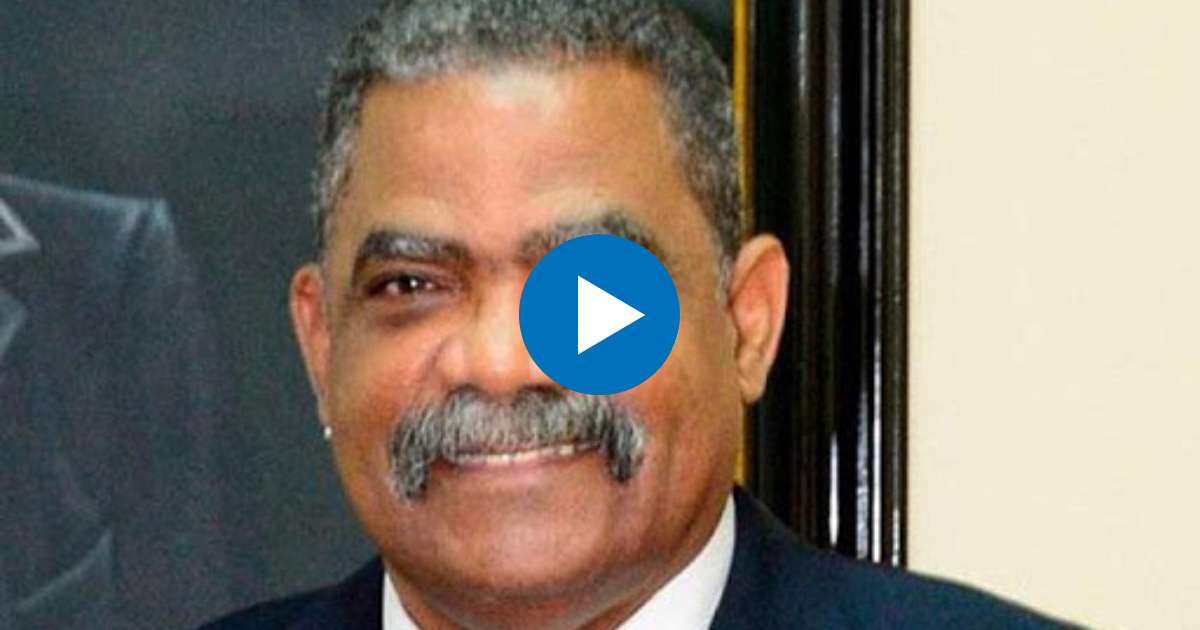
The Cuban independent mediaCuban Diary released this Wednesday an unpublished video, recorded and edited in November 2018, showing a private meeting in which Rubén Remigio Ferro, president of the Supreme People's Court (TSP), declared the judges' loyalty to "the revolution" and the Communist Party of Cuba (PCC) above all.
"We are not the judges of the enemy, nor the judges who are there to make things bad. We are the judges of the revolution. And the judges of the Party... We are not of the enemy. That is why we are here too. And we are interested fight against crime. And prevent it and combat it when it occurs," said Remigio Ferro.
Cuban Diary He specified that the material was made to circulate only among presidents and vice presidents of the Cuban provincial courts "with the objective that they convey to their subordinates the guidelines to follow."
"I can assure you that several of my colleagues are here, who would not allow lies about it, that the vast majority of our judges - I do not want to be absolute - respond to that vocation. And when I say the vast majority and I do not say the entirety, it is to leave a gap there for someone who is 'stuck' out there and that, from time to time someone may appear (...) They have appeared, we have had some cases, you know them, but the quantity. does not even make a percent, in relation to the majority of judges," commented the senior official.
In addition to Rubén Remigio Ferro, officials from the Ministry of the Interior (MININT), Attorney General Yamila Peña Ojeda, participated in the meeting; the vice president of the TSP, Marisela Sosa Ravelo; the president of the criminal chamber of the TSP, Otto Molina Rodríguez; the president of the chamber for crimes against State Security, Plácido Batista Veranes; and Heads of the General Directorate of Criminal Instruction and Operations of Cuba.
The independent media highlighted that the considerations of the president of the TSP ignore Article 47 of the Constitution, which states that "the function of dispensing justice arises from the people and is exercised on their behalf by the Supreme People's Court and the other courts that the law establishes."
Furthermore, at another time, Remigio Ferro expressed his concern about the guarantees and rights that the draft Constitution, which was going to be voted on in February of the following year, could represent for judges and prosecutors. Something that reveals the hypocrisy of the regime's speeches, since they change depending on the context at the convenience of power.
At the end of July 2021, as a result of the social outbreak that mobilized dozens of cities and towns in the country, the official had said in a press conference in Havana that "the diverse opinions, even of political meaning different from the prevailing in the country, do not constitute a crime" and that "thinking differently, questioning what is happening, that in itself does not constitute a crime.
"Demonstrating, in fact, far from constituting a crime, constitutes a constitutional right of people. Freedom of opinion, freedom of the press, of belief, even of political or ideological affiliation, that does not constitute a crime. What is the crime? Invite to riots, to disorders, to attacking, damaging, injuring, disobeying and disobeying the instructions that are aimed at preserving order and tranquility in the first place," he then added.
However, in October, in response to the Archipiélago platform's request for authorization to take to the streets to protest at government bodies,the official position changed radically. The response that the promoters of the initiative received at that time was that their demonstration was illegitimate because it sought to "promote a change in the political system in Cuba."
In case there were any doubts about the partiality of the Cuban justice system, at the end of October of that same year, the Mesa Redonda program broadcast an intervention by Cuban President Miguel Diaz-Canel in a meeting with presidents of the Municipal Assemblies of Popular Power, held a month ago, in whichadmitted that in Cuba there is no separation of powers but rather a "unity of powers".
"In the world there is a lot of talk about the division of powers. The legislative power is generally in the institutions that approve laws, the executive power in the Government and the judicial power in the courts, but in Cuba we do not work with the division of powers "We work with the unity of powers, through bodies that have different functions," he said without the slightest shame.
The president defended that "the concept of power that is used in Cuba, in the Cuban revolution, is the concept of popular power, which is subordinated or built on the concept of popular sovereignty."
What do you think?
SEE COMMENTS (5)Filed in: